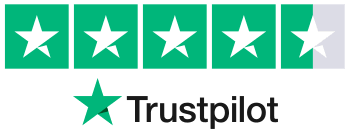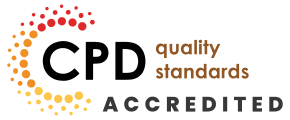In a world where the only constant is change, the education and job markets are evolving at an unprecedented pace. Traditional higher education, while foundational, often falls short of equipping students with the varied, specific skill sets required in today’s dynamic workforce. It’s becoming increasingly clear that to stay competitive and relevant, supplementing academic degrees with targeted courses is not just beneficial—it’s becoming necessary. This piece explores the compelling reasons why venturing beyond the confines of higher ed is essential for modern learners.

Skills Gap in Traditional Degrees
Higher education has long been the bastion of broad knowledge. Yet, in our rapidly evolving technological world, the skills taught often lag behind the needs of modern industries. Industries evolve rapidly, and educational institutions struggle to update curricula at the same pace. This creates a skills gap—where what students learn in university doesn’t quite match what the job market demands.
For example, digital marketing or data science developments can outpace academic updates, a gap readily filled by nimble courses, much like those crafted by adept essay writers online who adapt to emerging trends and requirements. It’s in these agile learning environments that students often find the practical tools and up-to-the-minute expertise they need to succeed.
The Rise of Specialized Industries
As industries become more specialized, the demand for niche skills is growing. Traditional degrees may offer a broad base, but specialized industries like biotechnology, cybersecurity, and sustainable energy look for precise competencies.
These emerging fields come with unique demands. For instance, the rise of artificial intelligence requires knowledge of machine learning algorithms, something not typically found in a standard computer science curriculum. Renewable energy sectors seek expertise in the latest sustainable technologies and policies, bridging gaps that specialized courses are designed to fill. Such industries necessitate a depth of knowledge that’s often found only in focused, up-to-date courses tailored to the complexities of the field.
The Flexibility of Online Courses
Online courses stand out for their flexibility, which is a boon for working professionals juggling careers with continuous learning. Unlike traditional higher ed’s rigid schedules and location-bound classes, online learning bends to fit individual lifestyles. Learners can engage with materials at their own pace, from anywhere, at any time, removing the barriers of commuting and strict timetables.
This adaptability means learning can happen during a lunch break, after bedtime stories, or on a weekend morning. The digital classroom is always just a click away, making it possible for education to be woven into the fabric of everyday life.
Cost-Effectiveness of Course Certifications
Course certifications offer a cost-effective alternative to full-degree programs, presenting a higher return on investment in both time and money. These courses are typically shorter, sharply focused, and less expensive, providing specific skills without the financial burden of years in university. For many, this means acquiring marketable skills swiftly and affordably, allowing quicker entry or advancement in the workforce and a faster track to earning potential. It’s a practical route to upskilling without the weight of considerable debt.
Networking and Real-world Collaborations
Specialized courses often foster networking by connecting students with professionals in the field. These environments are ripe for forming relationships that can lead to future opportunities and collaborations.
Many courses prioritize real-world experience, incorporating projects that require teamwork akin to industry practices. They bridge classroom learning with professional spheres, offering a taste of actual work scenarios. This not only enhances learning but also allows students to connect with peers and industry insiders, expanding their professional circles in meaningful ways. Such collaborations often pave the way for career advancements and open doors to new ventures.
Lifelong Learning and Upskilling
In today’s fast-paced world, lifelong learning is essential to staying competitive. Regular upskilling ensures one remains relevant and adaptable in a constantly evolving job market.
Courses serve as ideal stepping stones in this quest for knowledge, offering targeted skills that can be updated as industry demands shift. They embody the spirit of continuous learning, allowing for the accumulation of expertise over time. By engaging in this ongoing educational journey, professionals can pivot with the times, ensuring their skill set never falls out of date.

The Need for Personalized Education
Courses offer a level of personalization that large-scale higher education often cannot. Tailored to meet individual career objectives, these learning modules adapt to distinct learning styles, optimizing the educational experience.
This bespoke approach ensures that students aren’t just a number in a system but are guided through their learning journey in a way that best suits them. Just as one would seek out the best paper writing service for a custom approach to their writing needs, personalized courses cater to the unique ambitions and talents of each learner, laying a more direct pathway to their professional aspirations.
The Advantages of Cross-disciplinary Skills
Cross-disciplinary skills broaden a professional’s toolkit, offering versatility in the job market. Courses often provide this edge by merging concepts from different fields.
For instance, a marketer with data analysis skills or a programmer with a grasp of graphic design stands out. This cross-pollination of expertise not only makes a candidate more attractive to employers but also opens up roles in emerging fields that require a blend of specialized knowledge. The ability to wear multiple hats in the workplace can lead to unique roles that might not even exist yet, setting individuals up for a future-proof career.
Preparation for Entrepreneurship
Courses often zero in on the practical, hands-on knowledge essential for entrepreneurship, which may not be the focus of traditional higher ed. They equip budding entrepreneurs with the nitty-gritty of starting and running a business, from drafting a business plan to understanding market analysis and the basics of funding and finance.
The immediacy of applying what’s learned to real-world scenarios is invaluable for those ready to launch their own ventures. Courses can offer simulations and case studies that mirror the challenges of entrepreneurship, providing a safe space to experiment and learn, which is a vital preparatory step before diving into entrepreneurial waters.
Conclusion
In the shifting terrain of education and employment, supplementary courses stand out as bridges between academia and the dynamic demands of the workforce. They offer targeted, practical skills that traditional degrees might overlook. Students are urged to assess their career ambitions and recognize how specialized courses can propel them toward those objectives, complementing their higher education with the precision tools needed for success in their chosen fields.










